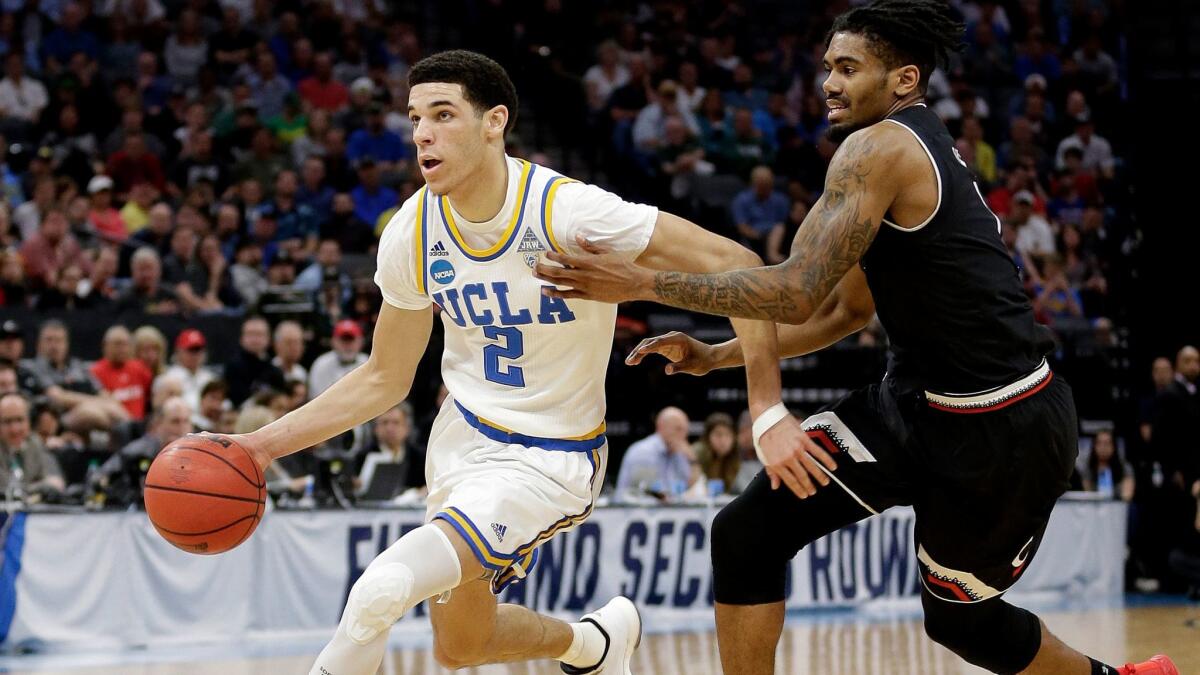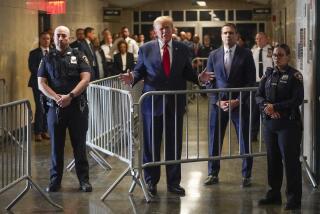Editorial: California’s bad boycott law makes UCLA’s Bruins jump through needless hoops

Under a law passed last year, California prohibits state-funded travel to states that discriminate against the LGBT community. There are currently four states on the boycott list — and now South Dakota may be added. That’s because the Mount Rushmore State recently passed a law that allows taxpayer-funded adoption and foster care agencies to refuse to place children with same-sex couples if doing so would violate the agencies’ religious beliefs.
A law like that is outrageous; discrimination against same-sex couples is unacceptable.
But interstate boycotts are not the solution — they’re a troublesome policy that, at least in California’s case, rarely seem to effect meaningful change. Though they are intended to put financial pressure on the targeted states, there are usually so many exceptions written in to allow for professional development and contractual obligations and the like that the laws become meaningless gestures that can unintentionally make the boycotters look like hypocrites.
Another problem with these laws is that they can invite retribution by encouraging tit-for-tat boycotts. How would anyone be helped if Mississippi or Tennessee chose to boycott California because it protects transgender people or because it defends gay rights?
The mixed message California is sending became clear this week as UCLA’s men’s basketball team prepared to travel to Memphis to participate in the NCAA Tournament South Regional game on Friday. Tennessee is one of the no-go states, along with North Carolina, Kansas and Mississippi, per the California Attorney General.
Uh-oh, an obvious violation, right? Actually, technically, no. UCLA asserts that its athletic department is not covered by the law because it doesn’t receive funding from the state’s general fund. Its revenue comes from ticket sales, sponsorships, student fees and gifts. Apparently that reasoning has persuaded even the author of the boycott legislation.
But even if this excuse is legally defensible, it doesn’t make much sense. The athletics department is inextricably linked to the university, which does receive state funding and is specifically named in AB 1887, the legislation that created the law. Athletic department employees are UC employees and it is reasonable to consider the money raised by the department as public money
Besides, try explaining it to average sports fans — in California and Tennessee — who aren’t familiar with the complicated funding arrangement. What they see is a team representing the state’s great public University of California traveling to a forbidden state. They might reasonably conclude that California isn’t serious about making Tennessee pay for its discriminatory law. Memphis is expecting the tournament to bring in more than $5 million for the local economy.
A UCLA athletics spokesman said the department will honor the boycott law by not scheduling regular season games in restricted states in the future. But when it comes to post-season games, which the university has no role in scheduling, it will participate.
The best idea would be for California to reconsider this ineffective and empty political gesture entirely.
If California expands the boycott to other states, it only increases the likelihood that the message it sends will become more confused.
Follow the Opinion section on Twitter @latimesopinion and Facebook
More to Read
A cure for the common opinion
Get thought-provoking perspectives with our weekly newsletter.
You may occasionally receive promotional content from the Los Angeles Times.






